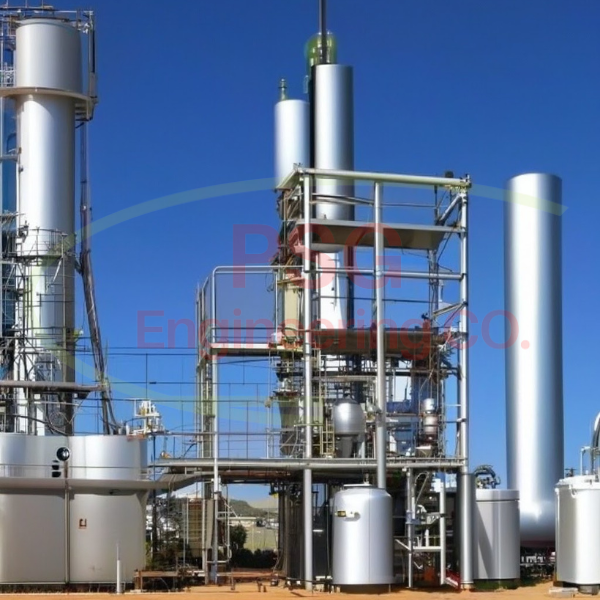Hydrogen Plant
Hydrogen Plant
Plant for Hydrogen, We are in the business of providing a broad variety of hydrogen gas generators, such as those based on water electrolysis and cracked ammonia. These are the catalytic cracking units where nitrogen and ammonia are separated. The resulting gas, which contains 25% nitrogen and 75% hydrogen, is further refined in a molecular sieves unit by eliminating moisture and uncracked ammonia.
This process uses gas boosters and de-oxygen units to produce hydrogen by bipolar electrolysis. By applying an electrical current to water, the constituents of water—oxygen and hydrogen—are separated through the process of electrolysis. These plants use 4.5 KW (per cubic metre of hydrogen) of electricity.
| Automation Grade | Automatic |
| Capacity | 1000 Nm3/day ( land Area 4000m2) |
| Frequency | 50 Hz |
| Brand | PSG Engineering Co. |
| Voltage | 415 V |
| Phase | Three Phase |
| Material | Stainless Steel |
| Country of Origin | Made in India |
| Minimum Order Quantity | 1 Unit |
| Brand | PSG Engineering Co. |
Frequently Asked Questions (FAQ)
A hydrogen plant is an industrial facility designed to produce hydrogen gas. Its primary purpose is to generate hydrogen for various industrial applications, such as fuel cells, refining, and ammonia production.
Hydrogen is typically produced through a process called steam methane reforming (SMR) or by electrolysis of water. SMR involves reacting methane with steam to produce hydrogen and carbon dioxide, while electrolysis uses electricity to split water into hydrogen and oxygen.
Safety in a hydrogen plant is crucial due to the flammable nature of hydrogen gas. Key considerations include proper ventilation, leak detection systems, explosion prevention measures, and adherence to strict safety protocols to minimize the risk of hydrogen-related incidents.
Hydrogen produced in a hydrogen plant is used in a variety of applications, including fuel cells for electric vehicles, power generation, and backup power systems. It’s also used as a feedstock in the production of chemicals like ammonia and for hydrogenation processes in the refining industry.
The environmental impact of hydrogen production depends on the method used. Hydrogen production from renewable sources, such as electrolysis powered by green energy, is considered environmentally friendly as it produces no greenhouse gas emissions. However, hydrogen production from fossil fuels, like natural gas, can result in carbon emissions unless carbon capture and storage (CCS) technologies are implemented.

